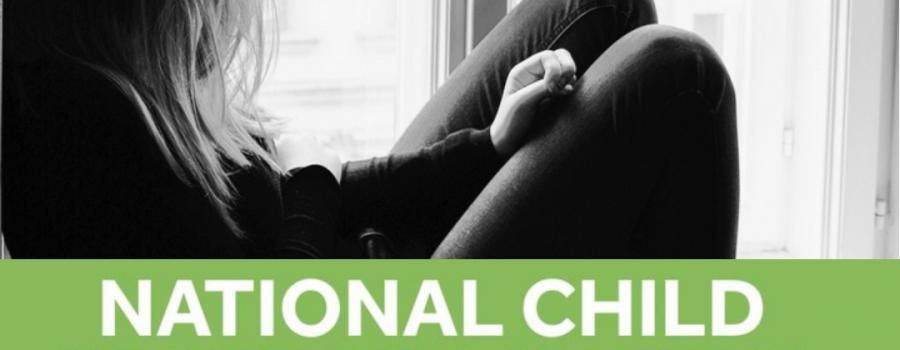
Feeling sad is an unavoidable aspect of being human but it can be difficult for children and young people who are learning to master and express their feelings.
As a parent or a concerned adult, sometimes we don't recognise a child's sadness or we don't acknowledge the depth of their feelings and brush it off as insignificant. Perhaps it is that we are engrossed in our own problems or overwhelmed by our own sadness. But, to avoid addressing a child's sadness and finding the support they need can lead to life-long emotional scarring.
Helping Children Through Grief, Loss and Change
Just like us, children feel sad when someone close to them dies or something else in their life happens that upsets them, but they usually show their feelings of grief and sadness in different ways to the way we might as adults.
Children are less likely to talk about sad feelings. Instead, they may show their sadness by their behaviour.
Children feeling sad may
-
Have difficulty going to sleep, or have bad dreams
-
Feel sick or have a headache or tummy ache
-
Become withdrawn
-
Go off their food
-
Be clingy and very demanding
-
Have tantrums and get angry and mean
What you can do when a child is sad
-
Talk about feelings, especially sadness and anger. There are some great children’s books to help you. Check out your library, bookshops or the school counsellor.
-
Make sure the children’s teachers and carers know your child may be upset. This important so that the carer can temper their response to unusual behaviour from your child and support them appropriately.
-
Be available for cuddles, but be sure it is for their needs, not yours.
-
Make sure that they know what has happened isn’t their fault.
-
If death is involved, talk about it simply but honestly – saying things like “gone to sleep” can make things worse. They might be scared to sleep!
-
Talk to your child about the person or pet they have lost and encourage them to talk too.
-
Reassure them that it’s OK for grown-ups to cry, but that you’ll feel better soon and you still love them very much.
-
Don’t burden your children with your grief. Get support from other adults.
-
Try to keep family routines going, as this helps children feel more secure. Make ‘special’ times together to do favourite things.
-
Get active! It can really help when we’re sad or stressed.
-
Try to end every ‘sad talk’ session with a bit of hope. Plan something special with your child – like playing with a friend or doing a fun activity together.
Making memories
Even as adults experiencing grief, sometimes we forget to focus on the happy times and can even feel guilty if we catch ourselves laughing. Don't. Take comfort from the happy memories you shared. This is difficult to do initially if your personal grief derives from a relationship breakup but try to remember, you have broken up with your partner, your child has not broken up with their parent.
-
Remember together the good and funny times. You can still laugh when sad.
-
Make a ‘Memory Book’– with photos, stories, drawings and other special mementos.
-
As well as helpful storybooks, you might like to make up your own story about a similar situation and show how those people managed.
Child Protection Issues
If your child is sad but won’t say why you need to make sure they are safe.
Children being bullied or abused may not speak out because they are scared you might get angry, or blame them. Reassure them and explain you will work with them to fix the problem.
If your child tells you something that needs your urgent action, stay calm, but do act!
Other things make children sad too, like when
-
Parents separate or divorce
-
They move house or school
-
A friend moves away
-
A pet dies
-
They lose a favourite toy
-
There is a serious illness or disability
-
They fight with a friend or get bullied
When parents separate…
This is a particularly difficult time for children. Parents are often so tied up with their own problems it can be hard to focus on their children. Children often feel responsible for the break-up, because they think they’ve been ‘bad’. Don’t add to their worries by undermining the other parent. Find other adults to unburden your feelings with when the children are not around.
READ: 7 Ways parents can help children cope with separation and divorce
For more parenting information and support:
Parentline ACT (02) 6287 3833
Parentline NSW 1300 130 052
Parentline NT 1300 301 300
Parentline QLD 1300 301 300
Parent Helpline SA 1300 364 100
Parenting Line TAS 1300 808 179
Parentline VIC 13 22 89
Parenting Line WA (08) 6279 1200 (Metro) 1800 654 432 (Freecall STD)
Parenting lines provide a telephone service providing information and good ideas about caring for babies and children.
Kids Helpline 1800 55 1800
The Kids Helpline is a free 24-hour telephone counselling service for children and young people aged between 5 and 25.
Source:
Content consultants:
Gillian Lee (Clinical Psychologist)
Dr Sue Packer AM (Communit Paediatrician)
NAPCAN is an independent charity and the leading advocacy body for the prevention of child abuse and neglect.
MORE READING:
Common Signs of Early Childhood Sexual Abuse
Legal options for victims of domestic violence
7 Ways parents can help children cope with separation and divorce
Published by: Divorce Resource



Comments
<a href=https://streamhub.shop/nakrutka-zriteley-kick/>Накрутка kick</a>
<a href=https://streamhub.shop/streamer-blog/nakrutka-zritelej-kick/112-plyusy-i...накрутка зрителей Kick в 2025</a>
<a href=https://streamhub.shop/>streamhub shop</a>
<a href=https://streamhub.world/>streamhub world</a>
<a href=https://streamhub.shop/>streamhub shop</a>
<a href=https://streamhub.world/>streamhub world</a>
<a href=https://streamhub.shop/>накрутка твич</a>
<a href=https://streamhub.world/>boost twitch</a>
Add new comment